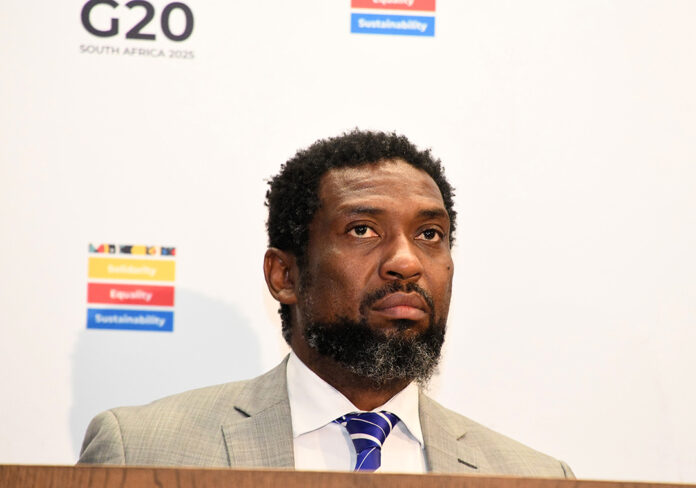Minister of Higher Education and Training Buti Manamela has vowed that the Sector Education and Training Authorities (Seta) boards will be appointed by the end of this week.
Manamela, who was speaking at Tshedimosetso House in Pretoria on the state of readiness for next year, said reforms are underway to ensure these bodies can perform effectively.
“By the end of this week, all Setas will have fully constituted accounting authorities in place, and the process for the appointment of chairpersons will be at an advanced stage of finalisation.
“This is part of a broader stabilisation effort, ensuring that Setas can perform their critical mandate without governance paralysis,” Manamela said.
He also announced the creation of a war room that will respond to challenges in the education sector.
Its role will be to ensure rapid decision-making and problem-solving, including issues like the National Student Financial Aid Scheme (NSFAS) allowance payments, accreditation of student housing, and finalisation of exam certificates.
“This war room brings together the leadership of the department, NSFAS, universities, TVET and CET colleges, student formations, and quality councils in one space, meeting weekly to resolve challenges as they arise,” he said.
New approach to governance
The war room will bring together leaders from the department, NSFAS, universities, TVET and CET colleges, student groups, and quality councils to meet every week and deal with challenges as they come up.
“It will also function as an early-warning system so that potential triggers of protest or disruption are identified and addressed before they escalate.
“The war room is a symbol of a new approach to governance: agile, collaborative, and transparent. It ensures that when problems emerge, no student, no parent, and no institution is left without answers,” said Manamela.
Manamela also set out plans to strengthen community colleges, stabilise Setas, and launch a war room to ensure the 2026 academic year runs smoothly.
He said these higher learning institutions are critical for the development of skills needed to build the country.
He highlighted the construction sector, saying local bricklayers and plumbers are scarce.
“Community Education and Training [CET] colleges are the unsung heartbeat of our system, serving those South Africans who were left behind by formal schooling or who now seek new opportunities later in life.
“Today, more than 130,000 learners are enrolled in CET programmes — from adult literacy and numeracy to second-chance matric to skills programmes linked to local economies.
“This is the front line of tackling illiteracy, reducing NEET levels, and giving hope to adults and young people in townships, rural areas, and informal settlements,” Manamela said.
He said the government’s priority for 2026 is to reposition CETs as what he called vibrant centres of lifelong learning.
Short skills programmes
He said councils are being finalised and governance structures strengthened so that colleges can plan and deliver with confidence.
Manamela explained that short skills programmes are being expanded and linked to local economies, with closer collaboration with non-government organisations, Setas, municipalities, and community organisations.
“This means skills for farming in rural districts, digital literacy in urban centres, and artisanal skills in communities where local industries require them,” said Manamela.
He said they are also focusing on lecturer training, faster delivery of learning materials, and the rollout of digital access tools.
He said CETs should serve as institutions where communities can find programmes that they aspire to.
“They create pathways for matric graduates, for young people not in employment, education or training, and for workers seeking to reskill or upskill,” he added.
Manamela highlighted that through bursaries, apprenticeships, learnerships and workplace training programmes, young people can access opportunities in engineering, ICT, hospitality, health and agriculture.



